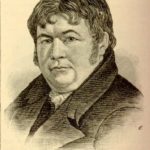Description
DISCLAIMER
This web site does not support or agree with this editor’s theological views and practices.
This books is listed only for the historical benefit of the Reformation writers including some great writings of the Anabaptist in the Reformation time.
The Anabaptists
Excerpts from the writings of various authors
edited by
H.E. Fosdick
Contents
The Anabaptists. 3
ON THE ANABAPTISTS. 3
From THE SCHLEITHEIM CONFESSION OF FAITH.. 8
TWO KINDS OF OBEDIENCE. 18
From THE WRITINGS OF HANS DENCK 1495 – 1527. 22
A PROTEST FROM THE ANABAPTISTS OF MORAVIA AGAINST DEPORTATION 25
From THE WRITINGS OF BALTHASAR HUBMAIER. 30
From A FORM FOR THE CELEBRATION OF THE LORD’S SUPPER by BALTHASAR HUBMAIER. 33
From THE WRITINGS OF MENNO SIMONS 1496 – 1561. 38
The Anabaptists
ON THE ANABAPTISTS
WHILE THE NICKNAME, ANABAPTIST, COVERS DIVERSE GROUPS with radically varied opinions, certain common convictions distinguished Anabaptists in general from the rest of the Protestant movement. They denounced the kind of reformation proposed by Luther, Zwingli and Calvin as a halfway affair. They believed in a national state church no more than they believed in the Roman church. To them religion was the intimate concern of each individual soul, and the church was a voluntary society of the regenerate, who had been saved by faith in Christ and were living obediently to Christ’s principles.
On this basis they not only threw over the papacy and the whole Roman sacramental system, but they denied as well all state interference in matters of religion, demanded complete freedom for the church and for individual consciences, and commonly so far separated themselves from the state that they refused to accept offices, to bear arms, or even to take oaths.
Because of this stand, opposition to infant baptism became the obvious and visible crux of their contention. While all the major Reformers denied the Roman doctrine of infant baptism, they retained the practice of it, regarding it, after the analogy of Jewish circumcision, as the sacramental means by which children were incorporated into the state church. To the Anabaptists, this was an impossible conception. To them becoming a Christian was a matter of individual choice, and joining the church could have no reality save as it was the personal, voluntary, responsible decision of the one concerned. They argued that if supernatural saving power, such as Roman doctrine ascribed to infant baptism, was denied, the logical and Scriptural conclusion was to drop it altogether, and to make baptism the outward symbol of a responsible person’s acceptance of Christ and of his decision to unite with Christ’s people.
Far from putting major stress on baptism, therefore, the Anabaptists, as compared with the rest of the Protestant movement, minimized it; it was, said Menno Simons, one of the least of God’s commandments. It was Luther, Zwingli, Calvin, Knox, and their followers who, regarding infant baptism as an essential factor in their whole church-state program, insisted on its indispensability, and denounced Anabaptist ideas as intolerable. Hans Oenck, one of the Anabaptist leaders, even said; “In themselves ceremonies are not useful, and he who thinks thereby to obtain anything, whether through baptism or the breaking of bread, is superstitious. … He who makes ceremonies burdensome is not much of a gainer thereby; for should one lose all ceremonies, he would not suffer any injury, and indeed it is better to want them than to misuse them.”
The major stream of the Anabaptist movement took its rise in Zurich among the followers of Zwingli. Men like Grebel, Manz, Blaurock, Denck, Hatzer, Hubmaier had been disciples of Luther and Zwingli but, convinced that these Reformers were going neither fast enough nor far enough, they demanded that their own much more radical ideas be put at once into operation. “It stands ill with the gospel in Zurich,” wrote Grebel to a friend, “and Zwingli no longer acts a shepherd’s part.” What these Swiss Brethren wanted was a church composed of believers only, complete freedom for the church from state control, strict discipline within the church, confining its membership to faithful and consistent Christians. Moreover, many of them would not bear arms, would take no oaths, would accept no magistracy.
Their attitude seemed to the major Reformers insufferable. How could the Reformation be maintained if, having thrown over the papal church, it now threw over the support of the state? The necessities of their dangerous situation pressed hard on men like Zwingli; they could hold their ground and make progress against the tremendous power of Rome, only as they carried along with them the consent and backing of their governments; they saw—and it may well be, truly—certain failure ahead if the church were reduced to a voluntary society of Christians, who even refused to be magistrates.
That day in Zurich, therefore, when George Blaurock entreated Conrad Grebel to baptize him with the right Christian baptism, and when Blaurock, himself baptized, then baptized the rest of the little group, started an irrepressible conflict. The Anabaptists developed astonishing influence. They spread widely and numerously across Europe. Commonly springing from the depressed and the poor, they appealed to motives which were powerful in the rank and file. All the more, however, because their popularity was dangerous, they were persecuted with a ruthlessness which in the end almost obliterated them. The importance attached to them is indicated by the fact that all the major Reformers published brochures against them—Luther, Zwingli, Bucer, Oecolampadius, Calvin, Knox and many others. They were exiled from Zurich under heavy penalties—“We are determined,” the Zurich Council announced, “not to tolerate Anabaptists within our borders. There must be no fellowship with them whatever”—and in 1529 an imperial edict decreed “that every Anabaptist and re-baptized person, of whatever age or sex, be put to death by sword, or fire, or otherwise. All preachers and those who abet and conceal them, all who persist in Anabaptism, or relapse after retraction, must be put to death. In no case must they be pardoned.”
The Anabaptists themselves provided excuse for such attack and persecution, because a left-wing group developed out of the movement which went to wild, fanatical extremes. In Wittenberg, while Luther was still in hiding at the Wart- burg after his confrontation of the Emperor at Worms, Nicholas Storch, coming from Zwickau, launched a campaign which threatened to disrupt the community. He preached the speedy coming of the millennium, the duty of community of goods, and the authority of his own supernatural revelations, and the disturbance his followers caused called Luther home to quiet the tumult. Ever afterward he denounced the Anabaptists mercilessly and called for their suppression. Similarly, Melchior Hoffmann broke away from the Lutheranism with which he started, and became an extreme fanatic, announcing the coming of the millennium in Strassburg in 1533, and arousing a social and religious excitement so great that it has been estimated that for some years a majority of Evangelicals in the Netherlands were Hoffmannites. This type of fanaticism came to its tragic climax in the city of Munster, where Jan of Leyden seized control and, after a regime of almost incredible orgies, collapsed before opposing armies and carried down with him the strength of the movement which he had so hideously misrepresented.
These wild extremists, however, were so much an aberration from the main movement which had begun with men like Grebel and Hubmaier, and the main movement contained such valuable truth, that it could not be utterly crushed out. Faithful Anabaptists still preserved their original ideas: a voluntary, purified church of believers only, a suffering, cross-bearing, sacrificial church, a strict discipline within the Christian society, stern censures and excommunications for all offenses, a strong sense of brotherhood and social obligation, a refusal to persecute or to take part in war, complete separation of church and state, and complete freedom of worship.
Menno Simons, converted from Roman Catholicism, left his priesthood, and gathered up the remnants of the scattered Anabaptists in the Low Countries. The Mennonites thus became the lineal descendants of the original Swiss Brethren; and English Baptists and Quakers so obviously show the influence of Anabaptist ideas as to leave no doubt that the continental movement was reflected in them by way of Anabaptist refugees who fled to England and English refugees who fled to the Low Countries.
No one person can be chosen in this anthology to represent such varied opinions as Anabaptism presents. Balthasar Hubmaier was an able scholar and a devoted Christian, his ideal to live in the spirit and by the principles of Jesus, but he did not agree with his brethren about accepting the magistrate’s office or about rightful use of the sword. Han Denck was a Humanist scholar, but he was primarily a mystic and all his writings which have survived stress that approach to Christian experience. In Menno Simons’ writings we have, on the whole, the most balanced picture of the Anabaptist position at its best.
The human side of the movement is well presented in such biographies as Conrad Grebel, by Harold S. Bender; Balthasar Hubmaier, by Henry C. Vedder; Hans Denck, by Alfred Coutts. The Anabaptists in Switzerland, by Henry S. Burrage is a valuable history, as is The Anabaptists, by Robert J. Smithson. The Rise and Fall of the Anabaptists, by E. Belfort Bax, while out of balance in its stressing of Anabaptist socialism, is a noteworthy volume. For a condensed summary, the article, Anabaptism in the Encyclopaedia of Religion and Ethics is excellent.





Reviews
There are no reviews yet.